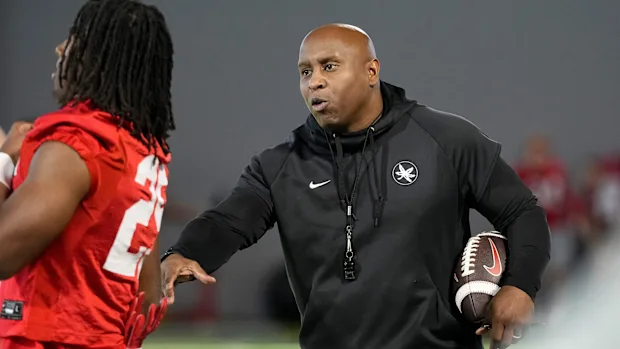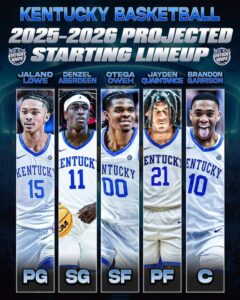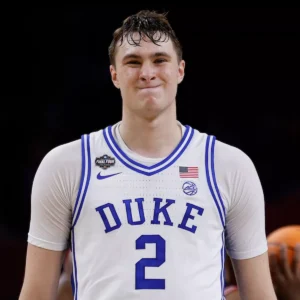
After joining Ohio State, Oregon sued football coach Carlos Locklyn in a buyout dispute.
When Carlos Locklyn was announced as the newest addition to Ohio State’s football coaching staff, many believed the move was the next logical step in his rapidly ascending career. Known for his player development and energetic recruiting presence, Locklyn had made a name for himself during his time at the University of Oregon, helping the Ducks establish one of the strongest rushing attacks in the Pac-12. However, what should have been a celebratory transition has now been marred by a legal battle.
The University of Oregon has filed a lawsuit against Locklyn for allegedly breaching the buyout terms in his contract, casting a shadow over the coach’s move to Columbus. At the center of the dispute is whether Locklyn fulfilled the financial and procedural obligations tied to his early departure.
The Background: Carlos Locklyn’s Rise
Carlos Locklyn joined Oregon’s staff in 2022 after a stint at Western Kentucky and Memphis. During his time in Eugene, Locklyn quickly earned respect as a running backs coach and recruiter. Under his guidance, Oregon’s backfield became one of the most productive in the country, producing stars like Bucky Irving and Noah Whittington. His ability to connect with players, both on and off the field, made him a fan favorite and a critical component of Oregon’s recruiting infrastructure.
In early 2025, Locklyn accepted a position on Ohio State’s staff, continuing his ascent through the coaching ranks. The Buckeyes, seeking to retool under head coach Ryan Day and counter a surging Michigan program, saw Locklyn as a key addition with national recruiting reach and proven coaching chops.
The Buyout Clause: A Point of Contention
Locklyn’s contract with Oregon reportedly included a buyout clause requiring financial compensation to the university if he chose to leave before the term ended. Such clauses are common across college athletics, serving as both deterrents and safety nets for programs that invest in their staff.
According to legal filings from the University of Oregon, Locklyn left without fully satisfying the terms of his buyout. The lawsuit claims Locklyn did not remit the agreed-upon buyout payment in the timeframe specified by his employment agreement. Oregon contends that despite multiple warnings and attempts to resolve the issue internally, the matter remained unresolved, leading the school to pursue legal action.
Though the amount in dispute has not been publicly disclosed, sources close to the case suggest the buyout could exceed six figures. Oregon’s filing, submitted in Lane County Circuit Court, emphasizes the importance of upholding contractual obligations, especially in a high-stakes, high-visibility industry like college football.
Legal Implications and Precedent
Buyout disputes in college football are not unheard of. Over the last decade, as coaching salaries and movement have exploded, legal teams from athletic departments have increasingly relied on contract language to protect their institutions. However, the success of such lawsuits often hinges on very specific contract wording and the clarity of communication during the resignation process.
In Locklyn’s case, the University of Oregon claims they provided ample opportunity for the issue to be corrected. They also allege that Locklyn’s exit, while abrupt, was not procedurally in violation—only that the financial component of the exit remains unpaid. This distinction may become crucial in court.
Some legal experts point to the Jimbo Fisher and Texas A&M situation as a broader illustration of how legal and financial details can become tangled in coaching moves. In Fisher’s case, a hefty buyout was part of a pre-agreed contract, but it was honored and paid in full by the school. When coaches leave voluntarily, however, the onus is on them—or their new employer, if negotiated—to satisfy any buyout terms.
Whether Ohio State plays any role in the resolution of this case remains to be seen. So far, the university has declined to comment on the lawsuit, stating that it is a personnel matter involving a former employee of another institution.
Potential Consequences for Locklyn and Ohio State
If the court rules in Oregon’s favor, Locklyn may be required to pay the full buyout amount, along with possible legal fees or interest. More broadly, however, the case could impact Locklyn’s standing among athletic departments if it signals a perceived unwillingness to honor contractual commitments.
For Ohio State, the legal drama is unlikely to carry direct financial consequences unless it is revealed that the university played a role in encouraging Locklyn’s move without ensuring the buyout was handled. Still, the optics are less than ideal. The Buckeyes have emphasized character and accountability in their recent staff hires, and a legal battle involving a new assistant coach could generate unwanted distractions during a crucial spring and summer recruiting window.
Inside sources in Columbus maintain that Locklyn has continued his duties unabated, working with running backs and hitting the recruiting trail hard. His addition has already paid dividends, as Ohio State recently landed a verbal commitment from a four-star running back out of Texas who cited Locklyn’s presence as a key factor.
Oregon’s Perspective: Protecting Its Investment
From Oregon’s vantage point, the lawsuit is not personal—it’s procedural. Athletic director Rob Mullens has faced multiple coaching transitions in recent years, from Mario Cristobal’s departure to Miami to Dan Lanning’s arrival and staff turnover. Mullens has made clear that Oregon’s legal action is about setting a precedent and ensuring the university’s contracts are respected.
“This is about the integrity of our agreements,” one Oregon official told a local media outlet. “We support our coaches in advancing their careers, but there are obligations that must be fulfilled. We’re simply asking the court to enforce the terms that were agreed upon.”
University legal filings include correspondence sent to Locklyn outlining the timeline and financial expectations of his departure. Oregon claims it delayed filing the lawsuit to give Locklyn ample time to respond or reach a resolution. It was only after repeated silence, the university argues, that legal action became necessary.
Broader Implications in the Coaching Carousel Era
The Locklyn situation is emblematic of a larger issue in college sports: the volatility of the coaching carousel. Assistant coaches now command larger salaries and more mobility than ever before, and with those perks come contractual expectations. As schools continue to poach talent, these legal disputes may become more common.
“Assistant coaches are moving like head coaches used to,” said a college football attorney based in Atlanta. “Programs are investing heavily in their coordinators and position coaches. With that comes the need to protect those investments—and that’s what you’re seeing here with Oregon.”
It’s not just about money, either. Buyouts often fund transition expenses, help retain staff continuity, and serve as a buffer against abrupt departures that can destabilize a program. When a buyout goes unpaid, it leaves a school exposed.
Locklyn’s Silence and Legal Strategy
Carlos Locklyn has yet to issue a public comment regarding the lawsuit, and it is unclear whether he will mount a legal defense or seek a private settlement. Some speculate that Locklyn’s camp may argue that the payment responsibility was unclear or that he believed Ohio State would handle the financial terms. Others wonder if a negotiated buyout reduction had been discussed internally but never formalized.
Without clarity from Locklyn or his legal team, most of this remains speculation. What is known, however, is that the lawsuit is active and moving forward. A court date has not yet been set, but pretrial proceedings are expected to begin this summer unless a settlement is reached.
What Comes Next?
For now, both Oregon and Ohio State are staying focused on football. Oregon is preparing for a transition year as the Ducks join the Big Ten Conference, a move that places them in direct competition with the very school where Locklyn now coaches. The tension between the two programs could intensify on and off the field.
Ohio State, meanwhile, is trying to reassert itself atop the Big Ten after back-to-back losses to Michigan and a disappointing playoff run. Locklyn’s role will be pivotal in reshaping the Buckeyes’ ground game, particularly with TreVeyon Henderson entering what could be his final collegiate season.
If the legal dispute drags into the fall, it could add a layer of intrigue to a potential Oregon–Ohio State showdown, either in the regular season or, perhaps, in the Big Ten Championship game. For now, though, all eyes are on the courtroom.
Carlos Locklyn’s journey from Oregon to Ohio State was supposed to be a coaching success story—a move from the Pacific Northwest to one of college football’s most iconic programs. Instead, it’s become a cautionary tale about contractual obligations, legal ramifications, and the high-stakes world of college football coaching.
As the lawsuit unfolds, it will test not just the financial details of a buyout clause but the broader norms governing how business gets done in the ever-evolving landscape of college athletics. For Locklyn, Oregon, and Ohio State, the next chapter will be written not just on the field—but in court.





